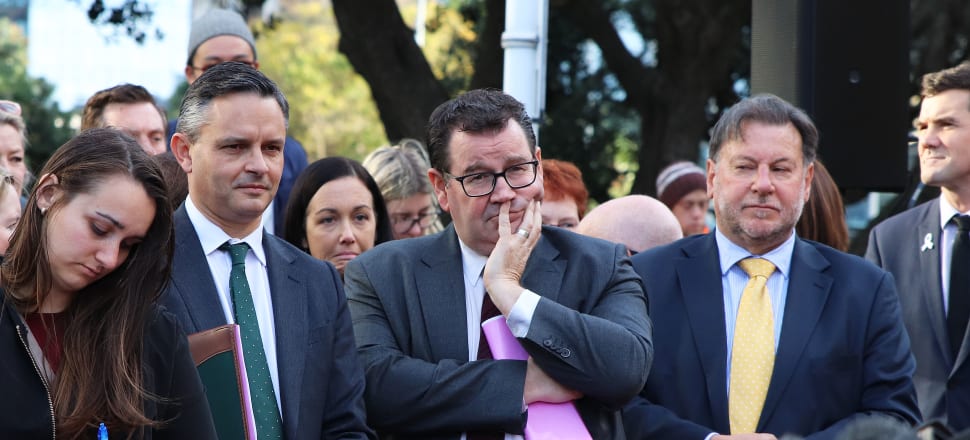
Climate Change Minister James Shaw says he had no idea more than $200m in cuts to climate policies would be announced on Monday and hasn't received advice on the emissions impacts of the move
As part of a $4 billion savings initiative announced on Monday, the Government will cut $236 million from climate policies on agriculture, transport and forestry.
One unusual aspect of the move is that climate funding is supposed to be ring-fenced solely for climate policies, but the savings will instead be returned to the general coffers.
Another unusual aspect is Minister for Climate Change James Shaw wasn't aware it would be happening. He told Newsroom he knew the Government was doing a savings exercise and evaluated a couple of policies he was responsible for, which didn't get cut. He was also briefed on a $10m cut to a waste policy.
READ MORE: * Budget 2023: Climate fund slashed by $800m * Internal report finds major risks to climate plan
But he found out about the remaining $226m in climate cuts at the same time the public did.
Ahead of time, the Green Party wasn't expecting Monday's announcement would contain anything for it to comment on. Shaw himself was only able to comment on the basis of the press release put out by Finance Minister Grant Robertson, as he had nothing else to inform him about the decisions made by Cabinet.
When asked if he was disappointed to see the Government making these decisions without so much as consulting him, he was resigned.
"Well, it's a majority Labour Government and I'm not in Cabinet. So that's really their choice," he said.
Would he have expected to have been notified about this ahead of time?
"Yeah."
Was he?
"No."
What would the impact of the cuts be on meeting New Zealand's climate targets – which are already at risk because of Prime Minister Chris Hipkins' earlier "policy bonfire"?
"I don't know. I haven't received advice on that."
Asked about the climate impacts earlier that day, Robertson too demurred. He said he couldn't remember whether Cabinet had looked at the climate impacts when it made the call to slash $236m in funding. The cuts included $50m for agricultural emissions cuts, nearly $110m for forestry, including native afforestation, and $50m for funding local councils to create walkable neighbourhoods and cycling networks.
Shaw said it was difficult to comment further without seeing the documents underlying the decisions, but that it "would logically flow" that the cuts to transport funding (in which projects will be phased out over a longer period of time) would lead to higher emissions than otherwise.
In addition to emissions impacts, the move could also have a financial effect on the decarbonisation mission. Money for climate policies comes mostly from polluters in the Emissions Trading Scheme and is meant to be ring-fenced for climate-related initiatives. Previous cuts to climate policies, announced as part of the "policy bonfire" earlier this year, saw the money returned to the Climate Emergency Response Fund. Instead, this money will simply be counted as savings, Robertson said.
"This money will all be treated as savings – it isn’t being made available for any other new spending," he said of the full package. "The economy is turning a corner, but inflation remains sticky. It is trending down but is doing so slower than we would like so we are doing our bit to help nudge it downwards faster."
Robertson confirmed this was the case for the climate money as well.
It comes after the Government slashed $800m from the climate fund at this year's Budget, a consequence of a collapse in the carbon price paid by polluters.
Robertson said the move was appropriate because, at the same time in the Budget, the Government did top up the fund by $1.9 billion from the general coffers, but there was no indication then that this would need to be paid back in the future through cuts to policies.
"In Budget 2023 we topped up the Climate Emergency Response Fund from general taxation in order to be able to continue to deliver. In this particular instance, I think it's appropriate that that comes back to the centre," he said.








